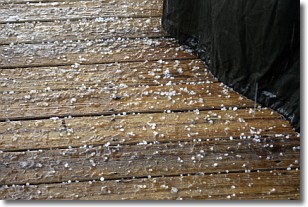Weather Alerts for North Carolina
1. Beach Hazards Statement for: Coastal Onslow
2. Beach Hazards Statement for: East Carteret
3. Beach Hazards Statement for: Eastern Currituck; Virginia Beach
4. Beach Hazards Statement for: Northern Outer Banks; Ocracoke Island; Hatteras Island
5. Beach Hazards Statement for: West Carteret
6. Coastal Flood Advisory for: Coastal Brunswick
7. Coastal Flood Advisory for: Coastal Pender; Coastal New Hanover
8. Coastal Flood Advisory for: Inland New Hanover
9. Coastal Flood Advisory for: Pamlico; Southern Craven
10. Coastal Flood Warning for: Coastal Onslow
11. Coastal Flood Warning for: East Carteret
12. Coastal Flood Warning for: West Carteret
13. Coastal Flood Watch for: Eastern Currituck; Virginia Beach
14. Flood Advisory for: Pender, NC
15. Flood Warning for: Jones, NC; Lenoir, NC
16. Flood Warning for: Robeson, NC
17. High Surf Advisory for: Coastal Brunswick
18. High Surf Advisory for: Coastal Onslow
19. High Surf Advisory for: Coastal Pender; Coastal New Hanover
20. High Surf Advisory for: East Carteret
21. High Surf Advisory for: Eastern Currituck; Virginia Beach
22. High Surf Advisory for: Northern Outer Banks; Ocracoke Island; Hatteras Island
23. High Surf Advisory for: West Carteret
24. Rip Current Statement for: Coastal Brunswick
25. Rip Current Statement for: Coastal Pender; Coastal New Hanover
26. Storm Surge Warning for: East Carteret
27. Storm Surge Warning for: Hatteras Island
28. Storm Surge Warning for: Northern Outer Banks
29. Storm Surge Warning for: Ocracoke Island
30. Tropical Cyclone Statement for: Mainland Dare; East Carteret; Northern Outer Banks; Ocracoke Island; Hatteras Island
31. Tropical Storm Warning for: East Carteret
32. Tropical Storm Warning for: Eastern Currituck
33. Tropical Storm Warning for: Hatteras Island
34. Tropical Storm Warning for: Mainland Dare
35. Tropical Storm Warning for: Northern Outer Banks
36. Tropical Storm Warning for: Ocracoke Island
37. Tropical Storm Warning for: Western Currituck
Want more detail? Get the Complete 7 Day and Night Detailed Forecast!
Current U.S. National Radar--Current
The Current National Weather Radar is shown below with a UTC Time (subtract 5 hours from UTC to get Eastern Time).

National Weather Forecast--Current
The Current National Weather Forecast and National Weather Map are shown below.

National Weather Forecast for Tomorrow
Tomorrow National Weather Forecast and Tomorrow National Weather Map are show below.

North America Water Vapor (Moisture)
This map shows recent moisture content over North America. Bright and colored areas show high moisture (ie, clouds); brown indicates very little moisture present; black indicates no moisture.

Weather Topic: What is Rain?
Home - Education - Precipitation - Rain
 Next Topic: Shelf Clouds
Next Topic: Shelf Clouds
Precipitation in the form of water droplets is called rain.
Rain generally has a tendency to fall with less intensity over a greater period
of time, and when rainfall is more severe it is usually less sustained.
Rain is the most common form of precipitation and happens with greater frequency
depending on the season and regional influences. Cities have been shown to have
an observable effect on rainfall, due to an effect called the urban heat island.
Compared to upwind, monthly rainfall between twenty and forty miles downwind of
cities is 30% greater.
Next Topic: Shelf Clouds
Weather Topic: What is Sleet?
Home - Education - Precipitation - Sleet
 Next Topic: Snow
Next Topic: Snow
Sleet is a form of precipitation in which small ice pellets are the primary
components. These ice pellets are smaller and more translucent than hailstones,
and harder than graupel. Sleet is caused by specific atmospheric conditions and
therefore typically doesn't last for extended periods of time.
The condition which leads to sleet formation requires a warmer body of air to be
wedged in between two sub-freezing bodies of air. When snow falls through a warmer
layer of air it melts, and as it falls through the next sub-freezing body of air
it freezes again, forming ice pellets known as sleet. In some cases, water
droplets don't have time to freeze before reaching the surface and the result is
freezing rain.
Next Topic: Snow
Current conditions powered by WeatherAPI.com




